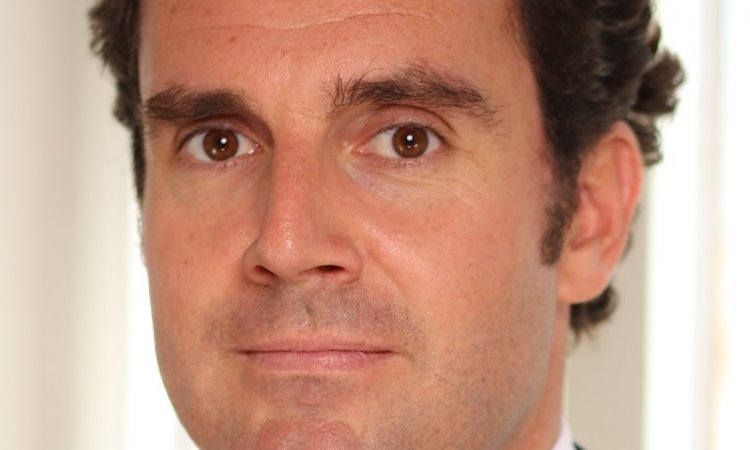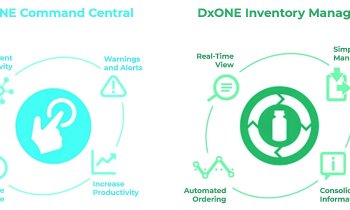Image source: Shutterstock/wan wei
Article • Structural adjustments
More competition among health insurers or among hospitals?
Temperatures rose significantly when a press release arrived at the Bundeskartellamt, Germany’s competition authority. ‘Does the Bundeskartellamt obstruct useful structural adjustments in the hospital sector?’ the release asked.
Report: Sonja Buske
Issued by the organisers of the European Health Congress, it claimed that the authority had blocked 40 hospital mergers. In view of a recent study by the Bertelsmann Foundation, which urged that 50 percent of German hospitals be shut down(Article in German), the claim sounded even more alarming. ‘We don’t know how this figure came about’, said Andreas Mundt, President of the Bundeskartellamt. ‘Of the 309 transactions examined between 2003 and September 2019, only seven were prohibited. This translates into 2.3 percent. How could such a low percentage of blockings undermine useful structural adjustments?’
When hospital mergers are problematic in terms of competition, or when hospitals fail to merge for other reasons, cooperation might be a useful alternative
Andreas Mundt
Mundt takes issue with the Bertelsmann study because, he said, it uses a different data pool than the Bundeskartellamt: ‘It looks only at the location of the hospitals, not at the hospital operators. We, however, look at the operators, because they are the ones competing with each other, not the sites.’ Case in point: the city of Cologne. ‘According to the study, in the northern area of the city only one of the currently four hospitals is needed,’ Mundt pointed out. ‘But, if you look at the operators you notice that all four hospital sites are being operated by the same organisation. Thus, the Bertelsmann study is looking at the situation from a very different perspective than the one we consider important from a competition point of view. For our purposes the Bertelsmann study is in parts irrelevant. I am quite confident that the operators know best which sites need to be consolidated in order to be commercially successful.’

Any hospital merger decision by the Bundeskartellamt is based on a number of factors, most importantly the patients who will be affected by the merger. To determine this, the competition authority analyses the post codes of the patients who were treated in the hospitals under assessment. Mundt’s team then asks which of those hospitals, from the patients’ point of view, could be replaced and which hospitals compete on the regional level. If, post-merger, the patients will not have access to a hospital by a different operator, the merger is considered problematic. ‘We continue to be convinced that competition is an important aspect of quality assurance in the hospital sector,’ Mundt elaborated. ‘Competition forces the hospitals to offer ever higher quality services to attract patients. This is a 100 percent positive development.’
The Bundeskartellamt President added that mergers which are considered problematic in terms of competition might be allowed, as long as they fulfil certain conditions. He pointed out that there are other options to realise structural adjustments in the hospital sector, such as cooperation. For example, hospitals could create efficiencies by shared use of major medical technology, while maintaining diversity. ‘Hospitals can share MRI scanners and thus save a lot of money,’ Mundt suggested. ‘When hospital mergers are problematic in terms of competition, or when hospitals fail to merge for other reasons, cooperation might be a useful alternative.’
‘No new competition laws are needed’
This September, at the European Health Congress in Munich, Professor Achim Wambach, President of the ZEW, Leibniz Centre for European Economic Research and Chairman of the Monopolies Commission, asked whether new competition rules are needed for statutory health insurers. The Bundeskartellamt’s answer in a nutshell: No. ‘We have ongoing and intensive communication with hospital owners and can thus develop reliable best practices to safeguard competition. I don’t have the impression that we miss cases that would need assessment. Moreover, we don’t work in a static manner; we develop continuously. Today, for example, we also survey office-based physicians as to the basis on which they refer their patients to hospitals and we closely scrutinise quality measures hospitals take. The law is very useful and easy to implement.’
Wambach agrees by and large, however, he does see certain weaknesses in the implementation: ‘Hospitals compete on quality – which can be improved by sheer size. This is something the Bundeskartellamt should consider in their assessments, rather than blocking mergers on principle only because two regional competitors are involved.’
More importantly, Wambach demands reforms in health insurers’ competition. ‘On the regional level, health insurers are often very powerful actors that wield influence – not always to the benefit of the patient. In this regard, the competition rules are unfair. The most important issue is: who protects the insured? It ought to be the insurers, but they lack the mechanisms, or they don’t use them.’ Thus, he demands that health insurers offer all services on an optional basis rather than current practice, in which the insured, i.e. customers, receive a standard package and can select optional coverage.
Quality agreements with hospitals

© Anna Logue Fotografie
Additionally, Wambach suggests that insurers conclude quality agreements with hospitals. Patients receive optional treatments only in those hospitals that have an agreement. Patients wishing to exercise their free choice of hospital can do that but must pay a premium if they opt for a hospital that has no quality agreement. This structure, according to Wambach, would control patient flow and ensure quality. Moreover, hospitals would recognise whether their business model is appropriate or not. The forces of competition would come into play and the issue of hospital shutdown, as discussed in the study of the Bertelsmann Foundation, would take care of itself since the free market decides. Albeit ‘that’s a long way ahead,’ Wambach conceded.
As Chairman of the Monopolies Commission, he would like to see politics have more confidence in the forces of competition among the health insurers: ‘Currently, competition exists only on the price level. Why does the German Federal Insurance Office have to intervene any time an insurance policy is not commercially successful? We should give the insurers more free rein and let them test more. Consequently, not all insurers will be on the same level – but all will become more productive and more innovative – to the benefit of the patient.’
Profiles:
Lawyer Andreas Mundt is President of the Bundeskartellamt (German Competition Authority) in Bonn since 2009. In 2010, he became a member of the Bureau of the OECD Competition Committee and, in 2013, head of the Steering Group of the International Competition Network (ICN).
In 2014, Professor Achim Wambach PhD was appointed to the Monopolies Commission, which he chaired since 2016. In that year he also became President of ZEW – Leibniz Centre for European Economic Research. He has served on the Scientific Advisory Board for the Further Development of the Risk Structure Compensation Scheme of the German Federal Insurance Office – the Bundesversicherungsamt (2017-2018). The professor also co-authored the expert opinion on the effects of a morbidity-oriented risk structure compensation scheme, as well as the expert opinion on the regional distribution effects of the risk structure compensation scheme.
24.10.2019








